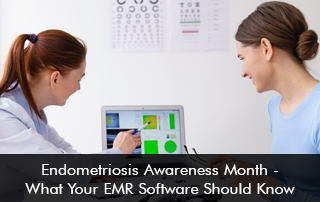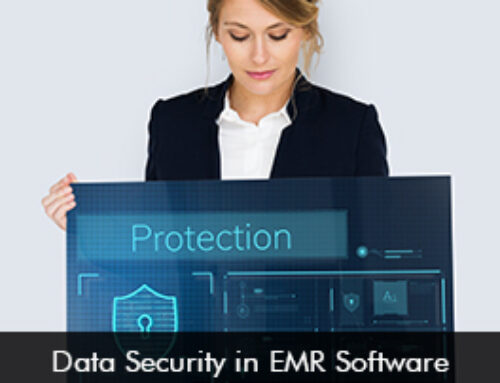March is Endometriosis Awareness Month. It is a time dedicated to raising awareness about a condition that affects millions of women worldwide. Endometriosis is a chronic and often painful disorder where tissue similar to the lining inside the uterus grows outside the uterus. While this condition impacts individuals on a deeply personal level, it also presents challenges for healthcare professionals.
Understanding Endometriosis
Before diving into the specifics of EMR software, let’s briefly understand endometriosis. This disorder affects women during their reproductive years and can cause various symptoms. Some of them include pelvic pain, heavy menstrual bleeding, and infertility. Despite its prevalence, it is often underdiagnosed or misdiagnosed due to its diverse symptoms and lack of awareness.
The Importance of EMR Software
EMR software plays a crucial role in modern healthcare by digitizing patient records, streamlining workflows, and improving patient care. For conditions like endometriosis, effective EMR software can enhance diagnostic accuracy, facilitate communication between healthcare providers, and ensure comprehensive treatment plans.
Key Features Your EMR Software Should Have
Comprehensive Patient History
Endometriosis diagnosis often requires a detailed medical history, including symptoms, menstrual patterns, and previous treatments. Your EMR software should allow for thorough documentation of these factors to aid in diagnosis and treatment planning.
Symptom Tracking for Endometriosis
Symptoms can vary widely among patients and may change over time. EMR software with customizable symptom-tracking features enables providers to monitor patients’ progress accurately and adjust treatment plans accordingly.
Imaging Integration
Imaging studies such as ultrasounds and MRIs are essential for diagnosing endometriosis and assessing its severity. Your EMR software should support seamless integration with imaging systems, allowing providers to access and analyze diagnostic images within the patient’s electronic record.
Referral Management
Endometriosis often requires a multidisciplinary approach involving gynecologists, pain specialists, and fertility experts. A robust EMR system should facilitate efficient referral management, ensuring timely coordination of care among different healthcare providers.
Medication Management
From pain management medications to hormonal therapies, treatment often involves complex medication regimens. Your EMR software should include features for prescribing, monitoring, and reconciling medications to prevent adverse drug interactions and improve medication adherence.
Fertility Tracking
Endometriosis is a leading cause of infertility in women. EMR software with built-in fertility tracking capabilities can help providers assess patients’ reproductive health, track ovulation cycles, and monitor the effectiveness of fertility treatments.
Patient Education Resources for Endometriosis Awareness
Educating patients about their condition and treatment options is essential for empowering them to make informed decisions about their health. Look for EMR software that provides access to tailored education resources, including articles, videos, and interactive tools.
Telemedicine Integration
Telemedicine has become increasingly important, especially for patients with chronic conditions like endometriosis who may require frequent follow-up visits. Ensure that your EMR software supports telemedicine integration, allowing providers to conduct virtual consultations and monitor patients remotely.
Challenges and Solutions to Endometriosis Awareness
While EMR software offers numerous benefits for managing endometriosis, it’s essential to address potential challenges, such as interoperability issues, data security concerns, and user training requirements. Collaborating with EMR vendors to address these challenges and tailor software functionalities to meet the specific needs of specific care can enhance the overall quality of patient care and improve clinical outcomes.
Conclusion
Endometriosis is a complex and often misunderstood condition that requires comprehensive care and management. By incorporating specific features into EMR software, healthcare providers can take significant strides toward improving the quality of care and enhancing the lives of patients affected by endometriosis.







